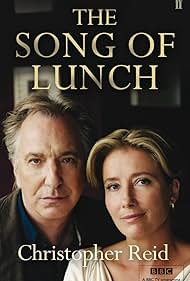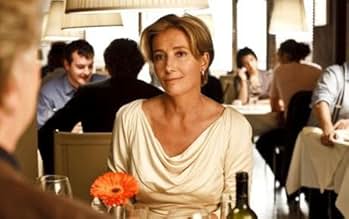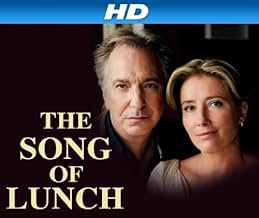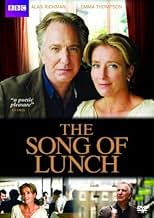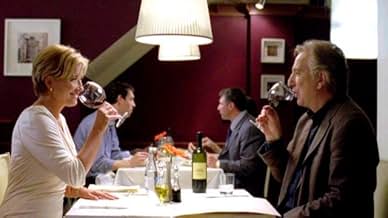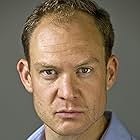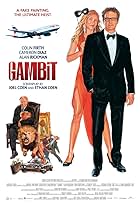The Song of Lunch
- TV Movie
- 2010
- 50m
IMDb RATING
7.3/10
2.7K
YOUR RATING
A London publisher recounts a lunchtime reunion with a former lover, in poetic monologue.A London publisher recounts a lunchtime reunion with a former lover, in poetic monologue.A London publisher recounts a lunchtime reunion with a former lover, in poetic monologue.
- Director
- Writers
- Stars
- Nominated for 1 Primetime Emmy
- 4 nominations total
- Director
- Writers
- All cast & crew
- Production, box office & more at IMDbPro
Featured reviews
I sat down to watch this for a second time in years and was immediately pulled in again by the clever vitriol of the male character with his witty and brutally honest musings. He is wasted potential personified, recognizing many of his own failings - right up to the point of changing anything, which he refuses to do. It's just easier to curl up around a bitter glass of restaurant chianti and bleat on about how all change is for the worse.
Joining him at the restaurant, the woman breezes into the picture, all lightness and controlled gladness - the picture of elegance and change personified. She is genuinely happy to see him and ready to scoop him into a reminiscence of nostalgic affection but he won't let go of his anger at her leaving him. He refuses to truly see himself and twists their reunion into an internal pity party that manifests in leers and snide comments. And still, he is somehow a sympathetic character (oh thank you, Alan Rickman). You understand her affectionate regard, but also her healthy detachment.
The poem is fascinating and the screenplay adaptation is practically perfect in every way. The beautiful photography and luscious sound editing propels this poem into an incarnate, omnisensory, and very human experience.
Joining him at the restaurant, the woman breezes into the picture, all lightness and controlled gladness - the picture of elegance and change personified. She is genuinely happy to see him and ready to scoop him into a reminiscence of nostalgic affection but he won't let go of his anger at her leaving him. He refuses to truly see himself and twists their reunion into an internal pity party that manifests in leers and snide comments. And still, he is somehow a sympathetic character (oh thank you, Alan Rickman). You understand her affectionate regard, but also her healthy detachment.
The poem is fascinating and the screenplay adaptation is practically perfect in every way. The beautiful photography and luscious sound editing propels this poem into an incarnate, omnisensory, and very human experience.
He came close to his fantasy, a renewal. But shortly let his mind take him down a trail of various sorts of negativity. He was on that line a bit, a line where he could have been witty and upbeat and challenging, a line he crossed into torpor and, well, annoyance, and more.
Or perhaps He knew something the other reviewers here (and they are a very solid group of reviewers) did not know: That She too wanted a renewal. Though her words bely that possibility, well into the film, she touches his hand in a way that is personal and perhaps a bit erotic. Perhaps in her wonderful life with a successful author and two nondescript kids, she would like to recoup her past with He.
Perhaps He knew this, and sabotaged it. If so, Why?
The subject that screenwriters love to chat about, subtext, comes up. I thought the Mamet fiasco, PHIL SPECTOR, had the characters all delivering subtext as dialogue. Thus there was no mystery. Here, however, the subtext was given us in his unspoken words, his thoughts, as voice-over dialogue in his own head. Perambulating in his skull. It worked.
For Rickman, I find this his second most compelling work, the first being CLOSET LAND (which I saw on a Saturday night in a popular movie theater, but only me in the room for that film). Both works exploit his rich voice.
Or perhaps He knew something the other reviewers here (and they are a very solid group of reviewers) did not know: That She too wanted a renewal. Though her words bely that possibility, well into the film, she touches his hand in a way that is personal and perhaps a bit erotic. Perhaps in her wonderful life with a successful author and two nondescript kids, she would like to recoup her past with He.
Perhaps He knew this, and sabotaged it. If so, Why?
The subject that screenwriters love to chat about, subtext, comes up. I thought the Mamet fiasco, PHIL SPECTOR, had the characters all delivering subtext as dialogue. Thus there was no mystery. Here, however, the subtext was given us in his unspoken words, his thoughts, as voice-over dialogue in his own head. Perambulating in his skull. It worked.
For Rickman, I find this his second most compelling work, the first being CLOSET LAND (which I saw on a Saturday night in a popular movie theater, but only me in the room for that film). Both works exploit his rich voice.
Alan Rickman plays a jaded publisher meeting a past flame (Emma Thompson) at an old haunt, now impersonally renovated. The publisher has a one-track mind and views her every move as erotic.
This is a dramatised narrative poem. I'm sceptical about modern poetry but this one's quite good. It may be familiar ground but a lot of the phrases are actually quite good: consciously poetic but a concise description. Fans of Alan Rickman might find it hard to control himself as his character is aroused by everything: a squeezed hand, a glass of wine meeting his lips, a comely waitress, even a pepper shaker. The story is told through his perspective, much of it as voice-over. The switch between voice-over and dialogue really works, creating tension and drama in what is a fairly undramatic scene. It's like a short play.
Both Rickman and Thompson speak the blank verse (with the occasional rhyme) very naturally. Their characters are intellectual people and the talk comes naturally to them, particularly Rickman's emotionally/creatively/sexually frustrated character.
It's only 50 minutes so it's worth a watch. It would have been nice if it were part of a series of poems.
This is a dramatised narrative poem. I'm sceptical about modern poetry but this one's quite good. It may be familiar ground but a lot of the phrases are actually quite good: consciously poetic but a concise description. Fans of Alan Rickman might find it hard to control himself as his character is aroused by everything: a squeezed hand, a glass of wine meeting his lips, a comely waitress, even a pepper shaker. The story is told through his perspective, much of it as voice-over. The switch between voice-over and dialogue really works, creating tension and drama in what is a fairly undramatic scene. It's like a short play.
Both Rickman and Thompson speak the blank verse (with the occasional rhyme) very naturally. Their characters are intellectual people and the talk comes naturally to them, particularly Rickman's emotionally/creatively/sexually frustrated character.
It's only 50 minutes so it's worth a watch. It would have been nice if it were part of a series of poems.
A beautiful tale of two long lost lovers that doesn't fail to lift your spirit. Despite only being a short film I enjoyed it very much. Perfectly assembled with great cinematography which compliments the original poem greatly. The melancholy and passion between the protagonists were definitely sustained through out the film steering it away from titles bearing names such as Depressing-love-story-for-the-over-40s or a Horny- middle-aged-people-have-a-rendez-vous. No better actors could have been picked for this. A brilliant performance on behalf of both Alan Rickman and Emma Thompson who portray the characters exact to how I had imagined them to be.
All in all 'tis a great film. However, I advise people to read the book first before watching the film.
All in all 'tis a great film. However, I advise people to read the book first before watching the film.
To all the Harry Potter nerds, Alan Rickman narrating for a whole 50 mins. In a film, what else do you need?
The song of Lunch is my recent find while browsing through the filmography of Emma Thompson. With run-time less than an hour, this TV movie is a poetic monologue of a struggling writer who's having a lunch date with his ex-lover. The whole movie shot from the POV of Rickman who's still obsessed with Thomson after all these years of their separation. Shot in an Italian restaurant on the streets of London where the two used to hang out while they were young, this drama clearly emphasizes on how the guy has remained stuck up to his long gone romantic venture while lady has moved on with her life and is there only for a formal reunion. The way he looks at her while drinking the wine and remembering the time they had together is a treat to watch.
If you like watching two people having random conversation, you will definitely like this.
The song of Lunch is my recent find while browsing through the filmography of Emma Thompson. With run-time less than an hour, this TV movie is a poetic monologue of a struggling writer who's having a lunch date with his ex-lover. The whole movie shot from the POV of Rickman who's still obsessed with Thomson after all these years of their separation. Shot in an Italian restaurant on the streets of London where the two used to hang out while they were young, this drama clearly emphasizes on how the guy has remained stuck up to his long gone romantic venture while lady has moved on with her life and is there only for a formal reunion. The way he looks at her while drinking the wine and remembering the time they had together is a treat to watch.
If you like watching two people having random conversation, you will definitely like this.
Storyline
Did you know
- TriviaThe photo on the dust jacket of the lead female character's husband's book is one of Greg Wise, Dame Emma Thompson's real-life husband.
- ConnectionsFeatured in The Wright Stuff: Episode #14.45 (2010)
Details
Contribute to this page
Suggest an edit or add missing content
